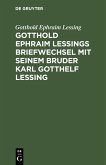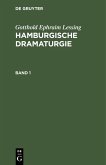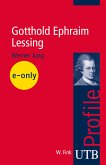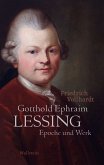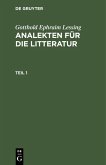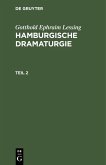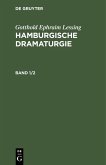New essays providing a comprehensive view of the pathbreaking dramatist and theorist Lessing.
One of the most independent thinkers in German intellectual history, the Enlightenment author Gotthold Ephraim Lessing (1729-1781) contributed in decisive and lasting fashion to literature, philosophy, theology, criticism, and drama theory. Lessing invented the bürgerliches Trauerspiel (bourgeois tragedy) and wrote one of the first successful German tragedies as well as one of the finest German comedies. In his final dramatic masterpiece, Nathander Weise, he writes of Christianity, Judaism, and Islam, of religious tolerance and intolerance and the clash of civilizations. Lessing's dramas are the oldest German theater pieces still regularly performed (both in Germanyand internationally), and both his plays and his drama theory have influenced such writers as Goethe, Schiller, Hebbel, Hauptmann, Ibsen, Strindberg, Schnitzler, and Brecht. Addressing an audience ranging from graduate students toseasoned scholars, this volume introduces Lessing's life and times and places him within the broader context of the European Enlightenment. It discusses his pathbreaking dramas, his equally revolutionary theoretical, critical, and aesthetic writings, his original fables, his innovative work in philosophy and theology, and his significant contributions to Jewish emancipation. The volume concludes by examining 20th-century reception of Lessing and his oeuvre.
Contributors: Barbara Fischer, Thomas C. Fox, Steven D. Martinson, Klaus L. Berghahn, John Pizer, Beate Allert, H. B. Nisbet, Arno Schilson, Willi Goetschel, Peter Höyng, Karin A. Wurst, Ann Schmiesing, Reinhart Meyer, Hans-Joachim Kertscher, Hinrich C. Seeba, Dieter Fratzke, Helmut Berthold, Herbert Rowland.
Barbara Fischer is Associate Professor of German and Thomas C. Fox is Professor of German, both at the University of Alabama.
One of the most independent thinkers in German intellectual history, the Enlightenment author Gotthold Ephraim Lessing (1729-1781) contributed in decisive and lasting fashion to literature, philosophy, theology, criticism, and drama theory. Lessing invented the bürgerliches Trauerspiel (bourgeois tragedy) and wrote one of the first successful German tragedies as well as one of the finest German comedies. In his final dramatic masterpiece, Nathander Weise, he writes of Christianity, Judaism, and Islam, of religious tolerance and intolerance and the clash of civilizations. Lessing's dramas are the oldest German theater pieces still regularly performed (both in Germanyand internationally), and both his plays and his drama theory have influenced such writers as Goethe, Schiller, Hebbel, Hauptmann, Ibsen, Strindberg, Schnitzler, and Brecht. Addressing an audience ranging from graduate students toseasoned scholars, this volume introduces Lessing's life and times and places him within the broader context of the European Enlightenment. It discusses his pathbreaking dramas, his equally revolutionary theoretical, critical, and aesthetic writings, his original fables, his innovative work in philosophy and theology, and his significant contributions to Jewish emancipation. The volume concludes by examining 20th-century reception of Lessing and his oeuvre.
Contributors: Barbara Fischer, Thomas C. Fox, Steven D. Martinson, Klaus L. Berghahn, John Pizer, Beate Allert, H. B. Nisbet, Arno Schilson, Willi Goetschel, Peter Höyng, Karin A. Wurst, Ann Schmiesing, Reinhart Meyer, Hans-Joachim Kertscher, Hinrich C. Seeba, Dieter Fratzke, Helmut Berthold, Herbert Rowland.
Barbara Fischer is Associate Professor of German and Thomas C. Fox is Professor of German, both at the University of Alabama.
Dieser Download kann aus rechtlichen Gründen nur mit Rechnungsadresse in A, D ausgeliefert werden.



